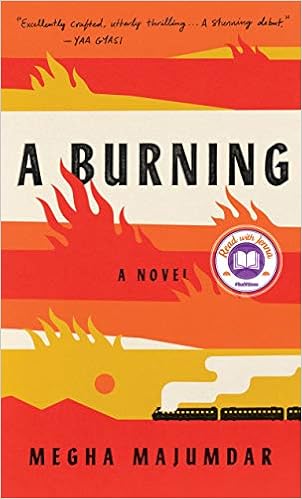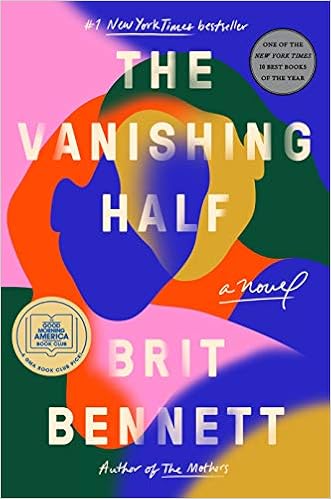1. A Burning by Megha Majumdar

After witnessing a terrorist attack, Jivan, a poor Muslim woman living in the slums of Kolkata, makes a comment on Facebook criticizing her government’s response to the tragic event. It’s an action with terrible consequences, as she’s taken into custody and accused of aiding the attackers.
2. The Vanishing Half by Brit Bennett

In her second novel, Bennett invents the tiny Black town of Mallard, La., where the residents pride themselves on their light skin, and identical twins Stella and Desiree Vignes are growing up in the 1950s all too aware of racial violence and oppression. It feels almost inevitable, then, when the girls run away together seeking better opportunities.
3. The Glass Hotel by Emily St. John Mandel
The Glass Hotel examines how one event—in this case the toppling of a Bernie Madoff-esque schemer—impacts a large group of seemingly unconnected characters. The characters are haunted by their pasts and must choose to either reckon with the ghosts of their mistakes or succumb to them.
4. Deacon King Kong by James McBride
It’s September 1969 when Sportcoat, the grumpy old deacon of a church in the Causeway Houses project in Brooklyn, shoots local drug dealer Deems in the face. Why on earth would he do such a thing? Even the deacon himself doesn’t seem to know.
5. The Mirror & the Light by Hilary Mantel
Few novels were as eagerly anticipated this year as The Mirror & The Light, the conclusion to British author Hilary Mantel’s blockbuster Wolf Hall trilogy. It lays out the downfall of Thomas Cromwell, consigliere to King Henry VIII and powerbroker of the Reformation.

Comments are closed.